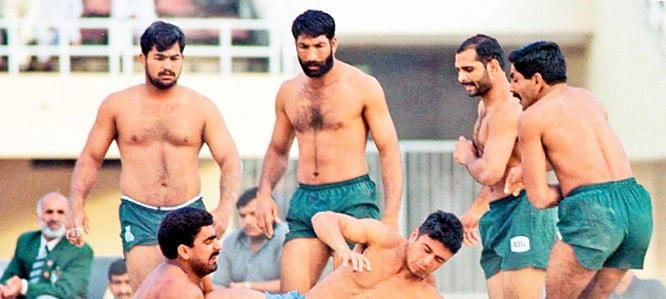
Pakistan Tehreek-e-Insaf must include sports programmes in its strategy to generate the 10 million jobs that it has promised to people of the country

The Ten Million Job slogan by Pakistan Tehreek-e-Insaf (PTI) is currently one of the most talked about in media and experts are debating whether it can be done.
In a country where 46 million young voters are set to play the key role in July 2018 elections, the slogan forms the centerpiece of PTI’s election campaign.
Leaving aside all speculations and day-dreaming, the slogan has come from a national leader, who has been a sportsman of worldwide fame, who undeniably understands the power of sports to address poverty.
Pakistan is a youthful country. We have very courageously fought the war against terror and are still fighting. But every adversity has a silver lining, and if the leadership correctly identifies the fault lines, there is always a chance for the state to bounce back.
Chairman Mao and Nelson Mandela used the power of sports to empower youth and build the nation. While the country pins its hope on the new generation, I am sure that PTI is not short of ideas for drafting a comprehensive national sports policy, and allocating substantial resources to fulfill the aspirations of millions who want to take up sports as careers.
Impressive programmes have been designed but never fully implemented. A wide gap exists between the policy and its implementation, primarily because of lack of capacity in different sports bodies.
The occasional brilliance shown by our athletes is attributed largely to the individual efforts. There is hardly any input from the system to support the development and growth of sports.
The sports policies and measures taken in the past were good enough in the given amateur sports system in which sports federations look towards government for funds and the players’ only hope to survive is finding a permanent job in some government or semi-government department.
Recently, professional sports activity has picked up pace in the country. Cricket and Kabbadi franchises have shown the path of professionalism to other sports. This effort is, however, random in nature and not embedded in our sports system.
The federations are provided annual and special grants by PSB for training and participation in international competitions.
The country also has a School and College Sports Board (SCSB) and the Higher Education Commission (HEC) is responsible for development of sports in public sector universities, whereas POA is supposed to promote the Olympic charter.
Despite this elaborate structure, sports remain a low national priority. According to a news item, KP government invested a whopping Rs10.6 billion in sports promotion in its five years. Most of the amount was targeted at broadening the base of sports infrastructure and making sports facilities accessible to masses at tehsil and district levels.
KP government also established an endowment fund to provide financial assistance to the deserving players.
These steps are indeed encouraging, but the vital question that comes to any agitating mind is about the sustainability of such investment in infrastructure development without a sound sports programme, involvement of community and education institutions, which are the two basic stakeholders in any sports development initiative.
Thus the entire effort is focussed on development of infrastructure whereas sports for development (SDGs) have been largely ignored.
Any future sports policy of the country will succeed only if it is framed by professionals with proper understanding of the concept of sports-for-development (SFD).
Thus it is suggested that if any future government is interested in utilising the potential of sports in generating socio-economic gains, it must formulate a holistic sports policy, which shall not only ask for provision of massive funds and development of sports infrastructure, but also provide a clear vision.
There is considerable evidence of sport’s role in increasing economic prosperity, providing employment opportunities and contributing to life skills of youth.
The leadership should take a closer look at Johann Olav Koss’s initiative of Right to Play, AB de Villiers’ sports for development in Tanzania and use of football by Didier Drogba as a force to mitigate civil war in Ivory Coast.
Pakistan sports must come out of its present amateur status. The new government must legislate to bind all corporates to spend a certain amount of their CSR funds in promoting sports activities.
The registered sports clubs must be given small grants through banks for establishing community-based sports programmes and facilities after scrutiny.
The education institutions should come up with degree programmes in Sports Management and Sports Education, thus producing able sports managers, coaches, trainers and researchers, necessary to manage the complexity of modern day sports.
I am quite optimistic that if the correct path is adopted by the leadership to professionalise sports in the country millions of respectable jobs can be created.